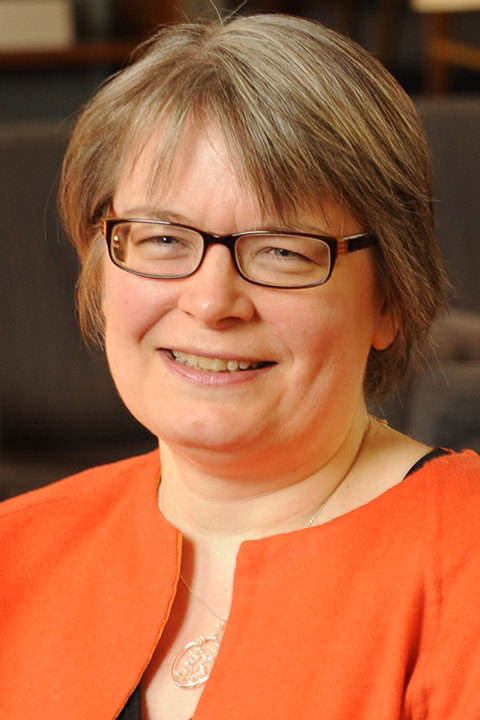South Asia
The South Asia collection at Columbia University Libraries contributes to local, regional, national, and international efforts to promote access to a variety of resources and is a source of support for students, faculty, and scholars at Columbia, in the New York metropolitan area, and beyond. The South Asia collection is one of the most comprehensive in the nation. South Asia print holdings exceed 500,000 volumes with more than half of the collection in English and other European languages. The Librarian for South Asian Studies collects extensively in South Asian languages; the collection is especially strong in Bengali, Hindi, Nepali, Panjabi, Rajasthani, Sanskrit, Sindhi, and Urdu. Other representative languages include Gujarati, Marathi, Newari, Oriya, Pashto, Sinhalese, Tamil, and many others. The geographical scope of the collection spans Bangladesh, Bhutan, India, the Maldives, Nepal, Pakistan, Sri Lanka, Afghanistan (managed by the Middle East & Islamic Studies Librarian), Tibetan-language material published in South Asia and East Asia (managed by the Tibetan Studies Librarian), and the global South Asian Diaspora.
As discussed by Dagmar A. Riedel, “history of Oriental Studies at Columbia University began in 1886 when Richard J. H. Gottheil (1862--1936, CC1881, DPhil Universität Leipzig 1886) and A. V. Williams Jackson (1862--1937, CC1883, AM1884, LHD1885, PhD1886), two alumni of Columbia College with German graduate training, were first hired to teach Semitic and Indo-Iranian languages, respectively.” A Division of Oriental Languages was established at Columbia in 1896, with Jackson heading the Department of Indo-Iranian Languages. This department expanded, in 1931, into the Department of Indo-Iranian and Comparative Linguistics.
Columbia has participated in the Library of Congress Cooperative Acquisitions Program since 1963. Via subject and serial profiles with the South Asia Cooperative Acquisitions Program (SACAP, New Delhi) and the Pakistan Cooperative Acquisitions Program (PIACAP, Islamabad), Columbia receives materials in all humanities and social science subjects and select sciences: anthropology, archaeology, architecture, art, economics, ecology, film studies (including media formats), folklore, gender studies, geography, history, human rights, literature, mass media, music, political science, religion, sociology, statistics (including census), and urban planning are special highlights of the South Asia collection. The South Asian Studies Librarian collects material for multiple libraries, including Butler (humanities and history), Lehman (social sciences), Avery (art, architecture, and urban studies), Music & Arts, Watson (business), and others. The Arthur W. Diamond Law Library maintains separate Library of Congress South Asia subject profiles.
The Burke Library at Union Theological Seminary has a renowned collection of missionary documents, pamphlets, and rare books and serials. The Rare Book & Manuscript Library (RBML) has several major South Asia collections including, among others: the Indian Princely State Legal Documents Collection with approximately 12,000 manuscripts from thirty-four princely states representing a wide variety of seals and “court fee” revenue stamps ranging from 1860 to 1960; a special collection of Sanskrit manuscripts on astronomy and mathematics, including materials donated by David Eugene Smith in 1931; and materials documenting Dr. Babasaheb Ambedkar’s affiliation with Columbia University in the Columbia University Archives’ Historical Photograph Collection.
Columbia University Libraries subscribes to extensive print serials from South Asia, with major continuing subscriptions from Bangladesh, India, and Pakistan. Additional serials arrive from Afghanistan, Bhutan, Nepal, Sri Lanka, and other parts of the world. Columbia University Libraries maintains extensive access to thousands of open source and subscription electronic serials, and links to free resources are continually added to the library catalog.
Columbia University Libraries contributes to Open Archives, since 2015--2016, through membership in the South Asia Open Archives, a collaborative initiative to make South Asia collections more widely accessible to researchers worldwide. Cooperative South Asia partnerships with ReCAP members, Harvard University, The New York Public Library, and Princeton University, further expand materials available to faculty and students through Borrow Direct and Interlibrary Loan (ILL) networks. Columbia University Libraries has participated with a subset of partners in annual South Asia Cooperative Collection Development Workshops from 2010 through the present (with commitments archived online). Membership in the South Asia Materials Project (SAMP) contributes to collaborative digitization and purchase acquisitions through pooled membership funds.
Collection suggestions from faculty and students are always welcome.
a. Undergraduate
The South Asian studies collection supports multiple academic departments at Columbia College, Barnard College, and the School of General Studies. Vernacular-language materials support South Asia-specific language and areas studies courses at Barnard’s Department of Asian & Middle Eastern Cultures and at Columbia’s Middle Eastern, South Asian & African studies department.
b. Graduate and Professional Schools
The South Asian studies collection includes primary and secondary resources in multiple languages ranging across the humanities, social sciences, and sciences. Within the humanities, the Departments of Art History and Archaeology, Dance, English and Comparative Literature, History, Music, Philosophy, Religion, and Theatre make extensive use of South Asian resources. Within the social sciences, the Departments of Anthropology, Economics, and Political Science feature extensive collections. Another extensive user base is within the Department of Middle Eastern, South Asian, and African Studies which offers master’s and doctoral graduate programs. The School of International and Public Affairs, the School of Public Health, and the School of Engineering are professional schools that make extensive use of South Asia materials. Smaller South Asia collections are available within the schools of Business, Journalism, and Social Work.
c. Institutes, Interdisciplinary Programs, etc.
The Columbia South Asia Institute has affiliated faculty teaching courses on South Asia in fourteen departments and six schools. It organizes South Asia-related conferences, seminars, exhibits, films, and lecture series that bring together faculty and students (undergraduate and graduate) from across Columbia campus. A separate University Seminar on South Asia, originally founded in 1964, draws faculty and students from Columbia and other local academic institutions in the New York/New Jersey area to monthly events at Faculty House.
d. Course Reserves
Selection for course reserves is up to individual faculty members. The South Asian Studies Librarian will do whatever is possible to secure specific materials lacking in the collection. The South Asia Reading Room (601 Butler Library) includes a noncirculating collection of primary and secondary resources frequently used in course readings.
a. Print
Columbia actively collects print materials published in the South Asia region in the following broad subjects: anthropology, archaeology, architecture, art and art history, census, cinema, decorative arts, demography, ecology, economics, environmental planning, folklore, gender studies, geography (including cartographic material), graphic novels and comics, history (ancient, medieval, European occupation, Muslim period, and modern), human rights, Islamic law, literature (classic works, popular works, and literary criticism; vernaculars and English translations), linguistics (including dictionaries), mass media, medicine (mostly Eastern medicine, public health, and history of medicine), museums, music, occult sciences, performing arts, philosophy, photojournalism, political science, religion (Brahmanism, Buddhism, Christianity, Hinduism, Islam, Jainism, Judaism, Sikhism, and Zoroastrianism), rural community development, social sciences, social welfare, sociology, statistics, travel and tourism, and urban and regional planning. Reference works in a wide variety of subject areas are actively acquired; some located in the South Asia Reading Room in 601 Butler Library, others in Butler Library and Lehman Library stacks, and more specialized works located off site. Most vernacular-language materials are located off-site.
For titles in English (including English translations): literature (novels and short stories) and literary criticism works are located in the Butler Library stacks for major works and off site for minor works. Recent poetic works in English are located in the Butler Library stacks. Titles for history are located in the Butler Library stacks for general histories and major surveys of specific South Asia provinces, states, or cities; more specialized works (e.g. most biographies and Festschrifts) are located off site. Performing arts and cinema studies titles are generally located in the Butler Library stacks. For social sciences (anthropology, economics, political science, sociology, public welfare, and statistics), general surveys, and engagements with major theoretical trends are located in the Lehman Library stacks; more specialized works are located off site. Art catalogs are generally located in the Avery Library stacks. Architecture, archaeology, and decorative arts titles are generally located in Avery Library’s off-site storage (noncirculating). Titles related to other professional school library collections (business, education, theology, and Christianity) are located off site. Science texts related to indigenous medicine are located in Butler Library’s off-site storage; reference-style science texts related to biology (e.g. guides to South Asian birds and animals) are located in the Science & Engineering Library’s off-site storage.
b. Digital Collections
Columbia University Libraries provides a wide variety of commercially developed digital resources; new South Asia-related additions to such collections as Adam Matthew Digital, Alexander Street Literature, Emerging Markets Information Service, and Gale Primary Sources are regularly added, usually via shared purchases by the South Asian Studies Librarian combined with other funds. Original or minimally duplicative primary source collections are prioritized for purchase.
Non-commercial and Open Source digital collections are also available such as Tasveer Ghar: A House of Pictures, the University of Cambridge Digital Himalaya project, the World Newspaper Archive, and many others. Columbia University has been a member of a collaborative South Asia Open Archives (SAOA) project since 2016. SAOA is officially launching on the JSTOR Forum platform in 2019. To the extent copyright permits, materials will be available with open access to any user regardless of location; copyright restricted files will be IP access restricted to SAOA members.
c. Media
Columbia regularly collects a wide variety of cinema and documentaries from the South Asia region, mostly in DVD format via the Library of Congress (Delhi & Islamabad) program. Most are located off site; selected videos especially relevant to class teaching are located on site in noncirculating collections. Audio CDs are comprehensively collected throughout the South Asia region for Carnatic, devotional, film, folk, Hindustani, miscellaneous, modern, and tribal South Asian music, as well as talking books, and are located in off-site circulating collections.
d. Languages Collected
Angika, Arabic, Assamese, Awadhi, Balochi, Bengali, Bhojpuri, Brahui, Braj, Dogri, Dzongkha, English, French, German, Gondi, Gujarati, Hindi, Kannada, Kashmiri, Khasi, Kurukh, Lushai, Magahi, Maithili, Malayalam, Marathi, Marwari, Minority Languages, Nepali, Oriya, Pali, Panjabi, Persian, Portuguese, Prakrit, Pushto, Rajasthani, Sanskrit, Santali, Sindhi, Sinhalese, Spanish, Tamil, Tibetan, Urdu are languages collected for Columbia University Libraries.
e. Chronological Focus
Materials collected range from prehistory to contemporary and modern. All chronological periods are collected for South Asia, including futurology.
f. Geographical Focus
Material is collected that is published in and/or focused on all South Asia regions, in the contemporary (e.g. nation-state) as well as historical (e.g. princely states and Harappan urban networks) context of world geographical demarcations. Material is also collected relating to the South Asia diaspora in the United States, Europe, Africa, the Middle East, Southeast Asia, and other regions.
g. Imprint Dates Collected
The main focus of collecting is current and recent (+/- five years) imprints. Antiquarian acquisitions via gift or purchase are collected for all chronological periods, with prioritized emphasis placed on those items that complement already strong collections within Columbia University Libraries. Gifts are accepted or rejected based on whether or not they duplicate existing titles in the shared (ReCAP) circulating collections. Duplicates already available only in noncirculating collections may be collected on a case-by-case basis.
Distinctive art and architecture collections are located noncirculating on- and off-site in Avery Architectural & Fine Arts Library, including some items that are unique to Columbia and many others that are relatively rare, but may be available in a limited number of other special art library collections. Many distinctive South Asia collections are available in the Burke Library at Union Theological Seminary, including the South Asia Series of the Missionary Research Library Archives. The Rare Book & Manuscript Library (RBML) has various unique South Asia collections, including the Indian Princely States Legal Documents Collection, Sanskrit manuscripts on astronomy, and materials relating to Dr. Babasaheb Ambedkar in the Columbia University Archives.
a. Consortia and Collaborative Collecting with Other Institutions
A joint collaborative off-site South Asia ReCAP partnership has been formed between Columbia University, Harvard University, The New York Public Library, and Princeton University. It operates based on collaboration via the mechanism of Library of Congress profile subscriptions from the South Asia region. The off-site ReCAP collaboration is in effect for profiles from the Library of Congress—New Delhi (and satellite offices in Bangladesh, Bhutan, the Maldives, Nepal, and Sri Lanka) from 2019 onwards. The South Asia ReCAP partnership will be expanded to Library of Congress-Islamabad profiles (for the Afghanistan and Pakistan region) at a later date.
A South Asian Cooperative Collection Development (SACOOP) partnership between Columbia and other libraries with strong South Asia collections has been in existence since 2010; annual workshops in conjunction with the Madison South Asia conferences have resulted in shared commitments to build distinct collections. Descriptions of workshops and spreadsheets detailing collaborative commitments are archived at the SACOOP website.
b. Location Decisions and Selection for ReCAP
Most new South Asia vernacular-language acquisitions from South Asia are sent directly to ReCAP. Exceptions for location in stacks include books with extensive visual components such as art catalogs, comics and graphic novels, reference resources such as dictionaries and encyclopedias, critical editions or commentaries of major classic texts, and important primary source repositories suitable for classroom assignments. New acquisitions in English and European languages are located either on campus or in ReCAP, in line with the criteria outlined in 3a above. Duplication of titles is limited to works identified by faculty as central to a specific course. In these cases, no more than a few copies are obtained, one of which should be placed by the faculty member on reserve. Deduplication only takes place when a title has been identified for relocation to ReCAP and a copy already exists on shelf at that facility. Even in this instance, the Librarian will inspect the copy that could potentially be withdrawn for any unique features or unusual provenance before assenting to deduplication.
c. Deaccessioning
Titles are deaccessioned only in cases where the physical copy is disintegrating and no longer serviceable in print format. In these instances, either a preservation photocopy is made, or a digital surrogate is created or obtained. Materials located in the Rare Book & Manuscript Library are not deaccessioned.
d. Digitization and Preservation
Various avenues are available for digital preservation of materials from Columbia University Libraries, including digitization by Columbia University itself, South Asia Materials Project (SAMP) proposals, and more recently, South Asia Open Archives (SAOA) digital projects. Columbia has already contributed various rare materials from the Burke Library at Union Theological Seminary and from Butler Library on the topic of Indian women’s magazines and caste issues for the South Asia Open Archives. Brittle books that do not meet copyright cutoff dates for digitization are preserved by microfilming on an incremental basis.

Gary Hausman
South Asian Studies Librarian
- Global Studies

Jeffrey Wayno
Collection Services Librarian
- The Burke Library at Union Theological Seminary

Peter Magierski
Middle East & Islamic Studies Librarian
- Global Studies

Jane Siegel
Rare Book Librarian
- Rare Book & Manuscript Library
Last updated: April 5, 2019